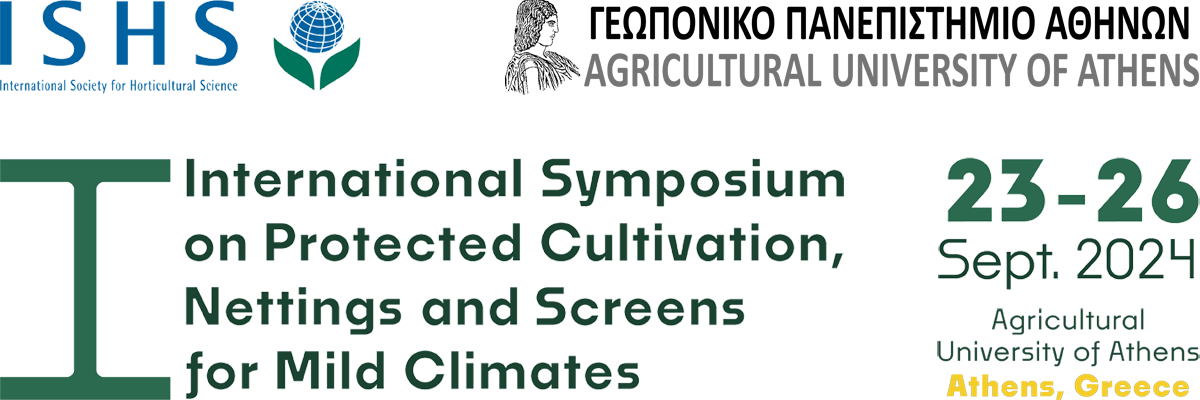Agricultural Research Organization, The Volcani Institute, Department of Fruit Tree Sciences, Israel
Top-covers, from nets and screens to photovoltaic panels, possible solutions to cope with climate change in open field crops?
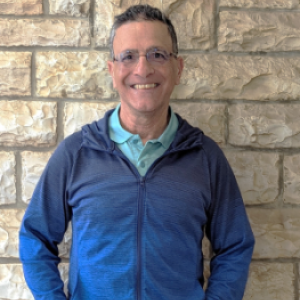
I am a plant physiologist, and throughout my career, I aimed at characterizing and understanding questions related to various aspects of plant growth and development, and its responses to external stimuli, especially those related to climate change. While breeding might provide an ultimate solution to solve problems related to global warming and water scarcely, it provides a long-term solution, especially in fruit trees. Therefore, growers around the globe are in need for practical and immediate solutions. Top covers, nets, and screens, which result in microclimate mitigation and water saving effects might provide good solutions to cope with climate change in crops which could not be cultivated fully protected. In the last 15 years, I investigated the effect of top-photoselective and non-photoselective netting on citrus productivity, fruit quality, tree physiology and its water relations. Results of our studies, as well as those of other groups, and obviously, the practical use of the technology by growers, demonstrated the beneficial effects of top-netting in many fruit trees. Another approach, which might result in similar beneficial effects, is the use of photovoltaic panels on top of agricultural plots (agri-photovoltaic). A new program in my lab is aimed at investigating the effect of the panels on citrus productivity, physiology and water relations. I am also interested in other aspects of fruit tree physiology, including the control of alternate bearing in citrus, olive an avocado, a phenomenon which result in a serious multi-annual yield loss. These studies combine physiological, molecular and genomics approaches. An EU-funded project, which I co-coordinate, is aimed at developing high-throughput real-time monitoring of citrus, pomegranate, grape and sweet cherry fruit cracking by utilizing and upscaling sensing and digital data technologies in.
University of Bonn, Institute of Horticulture, Germany
From growth to table: exploring the impact of pre-harvest conditions on greenhouse vegetable quality
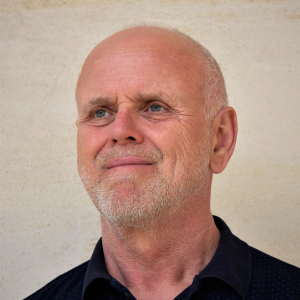
Nazim S. Gruda, Prof. Dr. (iR) at the University of Bonn, Germany, and Ivestigador Distinguido – Maria Zambrano, at the Polytechnic University of Cartagena, Spain, is a renowned authority in horticulture. Within the International Society for Horticultural Science, he serves as the Vice-Chair of the Division of Vegetables, Roots, and Tubers. His research is focused on sustainable food production, the impact of climate change on horticulture, and the product quality of fruits and vegetables. For his outstanding work, he received the "Dr Heinrich-Baur-Prize" from the Technical University of Munich, Germany and the "National Scientific Prize" from the Academy of Science of Albania. He is a Member, an Honorary Member, or a Corresponding Member of three European Academies and a Distinguished Scientist of the Academy of Science of China. Additionally, Professor Gruda actively participates as a consultant for organizations such as the Food and Agriculture Organization (FAO) and as an expert evaluator for several entities, including The European Commission.
Technical University of Cartagena, Department of Agricultural Engineering, Spain
Technological advances in vegetable seedling nurseries to improve crop sustainability and quality
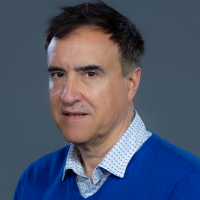
Juan A. Fernández is a Professor of Horticultural Sciences at the Technical University of Cartagena, Spain. He has been working on the introduction and development of techniques to produce new horticultural and ornamental species and on the molecular characterization of neglected and underutilised crops. More recently, he is investigating on the hydroponic cultivation of baby leaf vegetables, the use of compost from agri-food industry in vegetable production and the use of LED lighting for indoor cultivation of leafy vegetables, with the main objective of increasing the productivity and quality nutritional of the final product. In addition, he has been involved in developing of cultural techniques to improve soil quality, and crop yield and quality. Finally, he has carried out numerous studies on the influence of preharvest treatments in the field on postharvest shelf life of vegetables. He has been Chair of the Working Groups of the ISHS "Protected Cultivation in Mild Winter Climates " (from 2012 to 2019) and "Nettings in Horticulture" (from 2015 to 2019) and he is currently 2nd Vice President of the Spanish Society for Horticultural Sciences.
Horticulture and Product Physiology Group, Wageningen University, The Netherlands
Exploiting crop physiological knowledge to improve sustainability, yield and quality of greenhouses crops in mild climatic conditions
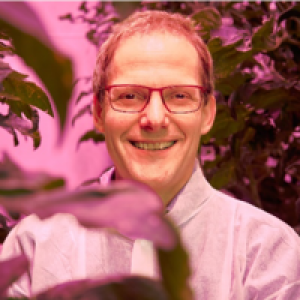
Prof Dr Leo Marcelis is head of the chair group Horticulture and Product Physiology at Wageningen University, The Netherlands. This group holds a strong position in research and education on greenhouse horticulture, vertical farming, and post-harvest quality.
His research focuses on sustainable production of high-quality products in greenhouses and vertical farms; Leo has a strong background in plant physiology, crop monitoring, computational modelling and experimentation. He has extensively studied the physiology, growth, and development of plants in order to improve sustainability and quality of crop production in greenhouses and vertical farms. In particular fluxes of assimilates, water and nutrients in the plant, sink/source interactions and partitioning among plant organs in response to abiotic constraints are subject of study.
More info: https://www.wageningenur.nl/en/Persons/Leo-Marcelis.htm
University of Thessaly, Laboratory of Agricultural Constructions and Environmental Control, Greece
Recent trends in greenhouse technologies and management
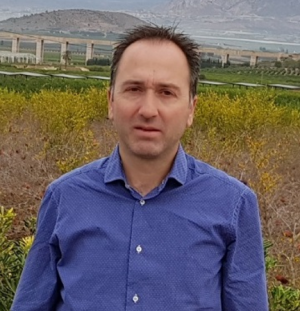
Dr Nikolaos Katsoulas is Professor at the University of Thessaly (BSc-MSc in Agronomy- 1997, Ph.D. in Agricultural Engineering-2002), Director of the Lab of Agricultural Constructions and Environmental Control and of the Institute of Rural Development of the IASON University Center for Innovation Research and Development, of the University of Thessaly.
He has more than 20 years Academic, Research and Teaching experience. He is specialised in microclimate control in agricultural buildings with emphasis in greenhouses. His research interests include technologies, automations, design, modeling and control in greenhouses, irrigation scheduling, hydroponic and aquaponic systems, energy management, renewable energy sources, microalgae production and other. He has long-term stays for research cooperation and teaching in several organisations around the world (e.g. UPCT, Spain; INRAE, Avignon, France; KUL, Belgium; SNU, Korea; UA, Tucson, USA; WUR, Wageningen, The Netherlands; HGU, Geisenheim, Germany). He has participated in more than 50 EU and National (Greek) funded research projects and has published more than 300 publications (more than 100 in Peer-Review journals). In March 2021 he joined, as Editor, the Editorial Board of Biosystems Engineering Elsevier Journal.
China Agricultural University, Department of Environmental Sciences and Engineering, China
Biostimulants and functional water-soluble fertilizer use in greenhouse vegetable production of China
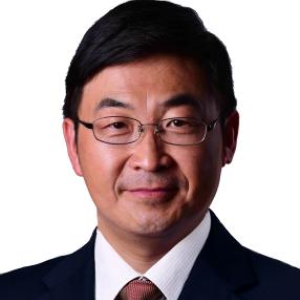
Academic education
1999.03-2002.12 Doctor, Institut für Sonderkulturen und Produktionsphysiologie (370), Hohenheim University, Stuttgart, Germany
1990.09-1993.06 Master, Beijing Agricultural University
1986.09-1990.07 Bachelor Beijing Agricultural University
Professional experiences
2007.12-
Professor, College of Resources and Environmental Sciences, China Agricultural University, Beijing
2002.12-2007.12
Associate Professor, College of Resources and Environmental Sciences, China Agricultural University, Beijing
1999.02-2002.12
Researcher Assistant, Institut für Sonderkulturen und Produktionsphysiologie (370), Hohenheim University, Stuttgart,Germany
1996.07-1999.02
Researcher Assistant, College of Resources and Environmental Sciences, China Agricultural University, Beijing
1993.06-1996.06
Researcher Assistant, Department of Eco-environmental Science in Agriculture, Institute for Application of Atomic Energy, Chinese Academy of Agricultural Sciences, Beijing
Dr. Chen Qing has more than 20-year experiences in teaching in Environmental Pollution Control and Remediation and researching in 1)Soil remediation of heavy metals, soil quality improvement in protected vegetable field;Including the remediation mechanism, application of multi-functional soil amendments (natural mineral materials, modified carbon-based materials, organic waste materials derived from fermentation and food processing, etc.) to control heavy metal pollution and improve soil health in greenhouse. 2)Biostimulants & water soluble fertilizers use and organic waste recycle in sustainable vegetable production;Including biostimulating functional evaluation of food/fermentation waste, agricultural and industrial waste etc.; development and promotion of water-soluble fertilizers and supporting fertigation technology; soil amendments, nitrogen and phosphorus synergists. 3)Utilization of soil legacy phosphorus and non-point source pollution control: Including mitigating the potential environmental risks arising from the accumulation of soil legacy phosphorus in farmland, the biotic and abiotic processes of water, carbon and nitrogen regulation on the retention, release and movement of soil phosphorus; microbial mechanism of soil phosphorus cycling driven by exogenous carbon input. Dr. Chen Qing has chief-investigated in over 10 national and international research projects, published more than 90 scientific papers, 7 monographs, and over 10 patents.
University of Turin, Department of Agricultural, Forest and Food Sciences, Italy
Circular concepts for biowaste and crop fertilisation management

Luisella Celi is Full Professor in Soil Biogeochemistry at the University of Turin, Department of Agricultural, Forest and Food Sciences, with academic education in Chemistry and PhD in Agricultural and Environmental Chemistry. Visiting researcher at the Agriculture Canada Centre (Ottawa, Canada, 1994-1995) and 30 years of expertise and background in soil nutrient cycling and plant nutrition.
The research topics deal with soil biogeochemistry and nutrient cycling in both agricultural and forest ecosystems. In particular, the research activity is focused on carbon, phosphorus and nitrogen processes with particular attention to improving the bioavailability of nutrients in extreme environments and/or characterized by specific dynamics, such as rice paddies. Starting from understanding the mechanisms controlling organic matter stabilization and accumulation in soil she is investigating the best technologies that can increase organic matter and lead the soil to act as a sink / source of C. In the most recent studies, L. Celi has dedicated most of the activities to the interconnection between organic matter and nutrients in a more ecosystemic view, while emphasizing the role of the soil-plant microbiome interconnection in enhancing nutrient cycling and exploring nutrient recovery solutions from biowastes to obtain new biobased products for a more sustainable circularity. Her research has resulted in more than 260 publications in scientific journals, book chapters and conference proceedings. The ORCID identifier is: http:// orcid.org/0000-0002-2365-3317.
She is the Director of Research of Department of Agricultural, Forest and Food Science (DISAFA), University of Turin (2018-2024), President of Italian Society of Agricultural Chemistry (2024-2025), Scientific Responsible of AGRITECH National Centre for spoke 6 for the University of Turin (2022-2025) and coordinator/participant of many national and international projects. Topic Editor of SOIL Journal and in the Editorial Board of Geoderma, Biology and Fertility of Soil. She is head of the Open Access Laboratory for Elemental Isotopes at DISAFA, member of the Scientific Committee of the Open Access Laboratory of Magnetic Resonance, member of SAFA PhD supervisor board at the University of Turin. She has been President of Soil Chemistry Session, Italian Soil Science Society (2008-2010), and is Member of the Committee Panel of the European Phosphorus Platform.
University of Naples Federico II, Department of Agricultural Science, Italy
Protected cultivation in Mediterranean climate: can constraints be turned into opportunities?
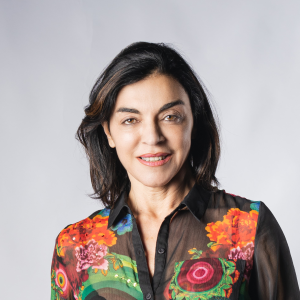
Stefania De Pascale is, since 2007, full professor of Horticulture at the University of Naples Federico II at the current Department of Agricultural Science. She is, since 2010, Italian representative in the Council of the International Society of Horticultural Science (ISHS), was Chair of the Commission Protected Cultivation and Chair of the Division Protected Cultivation and Soilless Culture of the ISHS. Prof. De Pascale is the head of the Research Laboratory on Crop research a for Space including an innovative Plant Characterization Unit (PCU) funded by the PlAnt Characterization unit for closed life support system – engineering, MANufacturing & testing (PaCMan) project and conceived as a crop research facility within the MELiSSA (Micro-Ecological Life Support System Alternative) program which is a joint long-term effort, led by the European Space Agency (ESA), focused on the development of a regenerative life-support system for air, water and food production in the sight of future long-term manned missions to Moon and Mars. Since she joined the Department of Agricultural Sciences in 1993, has performed extensive research both in field and in greenhouse to determine the effects of environmental and management factors on plant growth and produce quality on a wide range of vegetable and ornamental crops. Since the last 30 years, her research interests include plant biology and crop production in Space environments and the use of crop plants in Bioregenerative Life Support Systems (BLSSs) for long-duration Space missions. Recent research activities also include the use of biostimulants in horticulture, strategies to improve circularity in agriculture, smart urban horticulture, and vertical farming. Her research activity is carried out within the framework of projects financed by the EU, the Italian Ministry of University and Research, the Italian Ministry of Agriculture and Forestry, the Italian Space Agency (ASI) and the European Space Agency (ESA), in which De Pascale has also carried out and continues to carry out scientific coordination of projects and sub-projects. She has co-authored almost 300 peer-reviewed papers in international scientific journals, >100 conference papers in peer-reviewed book of proceedings and >250 research papers and technical articles in Italian magazines. Stefania acts as reviewer and co-editor for national and international journals. She also acts as a referee, an external a consultant for the Italian Ministry of University and Research, the Italian Ministry of Agriculture, the EU, the COST Office, the FAO and many international research institutes around the world. Stefania has been a member of the organizing committee and scientific committee of numerous national and international conferences. Stefania De Pascale has also been Convenor of major international conferences and participates as an invited speaker at numerous national and international conferences and workshops. Prof. De Pascale has carried out uninterrupted teaching activities on Horticulture and Floriculture topics and has been rapporteur/tutor for degree, master's and PhD theses. Metrics Overview (Scopus, Jan. 2024): Documents= 287; H index=44; Citations= 7584. Listed among the World's Top 2% Scientists by Stanford University from 2019-2020.
Symposium Dates: September, 23-26, 2024
Abstract Submission Launch: June 1, 2023
Abstract Submission Deadline: April 30, 2024 15 May 2024
By registering on our website, you consent to the process of your data by AFEA CONGRESS SA in order to receive newsletters for this conference/event. You have the right to access, correct and delete your data in accordance with the General Data Protection Regulation 2016/679 U.E. and if you wish to exercise your rights under this policy, you can contact us via [email protected]
Future updates
I agree with the process of my data by AFEA CONGRESS SA for the sole purpose of receiving newsletters for future company activities of my interest.
